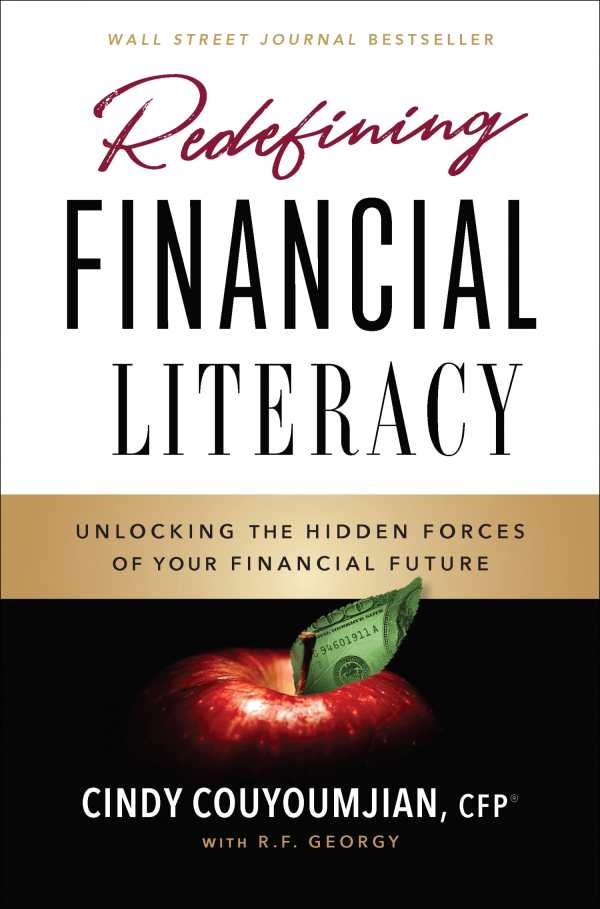It looks like you've stumbled upon a page meant to be read by our code instead of viewed directly. You're probably looking for this page.
Redefining Financial Literacy
Unlocking the Hidden Forces of Your Financial Future
Redefining Financial Literacy introduces exciting, of-the-moment market opportunities to individual investors, aiming to empower them.
Cindy Couyoumjian’s economic self-help text Redefining Financial Literacy suggests cultivating awareness about the hidden forces that affect money.
Asserting that the 60/40 investment plan, which allocates sixty percent of a portfolio to stocks and forty percent to bonds, no longer provides the security that investors need, the book reveals the turbulence of the contemporary market. In response, it suggests changing mindsets and biases around investing. From this perspective, there are hidden political, historical, and economic forces that impact money behind the scenes—forces that are revealed in an accessible, relevant, and practical manner throughout the book for average investors.
Suggesting actionable steps for changing one’s mindset, the book argues that it is important to anticipate and prepare for a future that is both burdened by the excesses of the past and open to new, flexible, multi-asset investment models that are safer from market swings. It makes lists of helpful habits and warns against approaching investments alone: here, reliable financial advisors are imperative to investment success.
This work is personalized by engaging personal anecdotes that complement its recitations of facts and figures, such as a note that women hold fifty-one percent of the personal wealth in the United States—a figure that is expected to grow even more over the next forty years. It asserts that financial literacy can also help to bridge the gaps between the rich and the poor, as those who are aware of how the financial world operates are projected to be less tolerant of excess. It aims to transform investors from passive spectators into active participants in their financial futures.
The text suggests that exciting opportunities are now open to individual investors, including asset classes who have been historically restricted. It argues that there are new avenues for major institutional endowments like universities, too. Its explanatory charts and extensive references couple with quotations from important historical and contemporary figures to encourage reflection.
This is also an of-the-moment text that stretches to consider the particular challenges raised by the Covid-19 pandemic. It understands that capitalism may never be the same, and reveals the degree to which the system—already on the brink of failure—contributes to financially precarious situations. But it also knows that cataclysmic events have always affected economic systems— and have often resulted in change.
Promoting more inclusive financial models, Redefining Financial Literacy is a helpful economics reference work that imparts the knowledge that investors need to navigate the market.
Reviewed by
Kristine Morris
Disclosure: This article is not an endorsement, but a review. The publisher of this book provided free copies of the book and paid a small fee to have their book reviewed by a professional reviewer. Foreword Reviews and Clarion Reviews make no guarantee that the publisher will receive a positive review. Foreword Magazine, Inc. is disclosing this in accordance with the Federal Trade Commission’s 16 CFR, Part 255.
